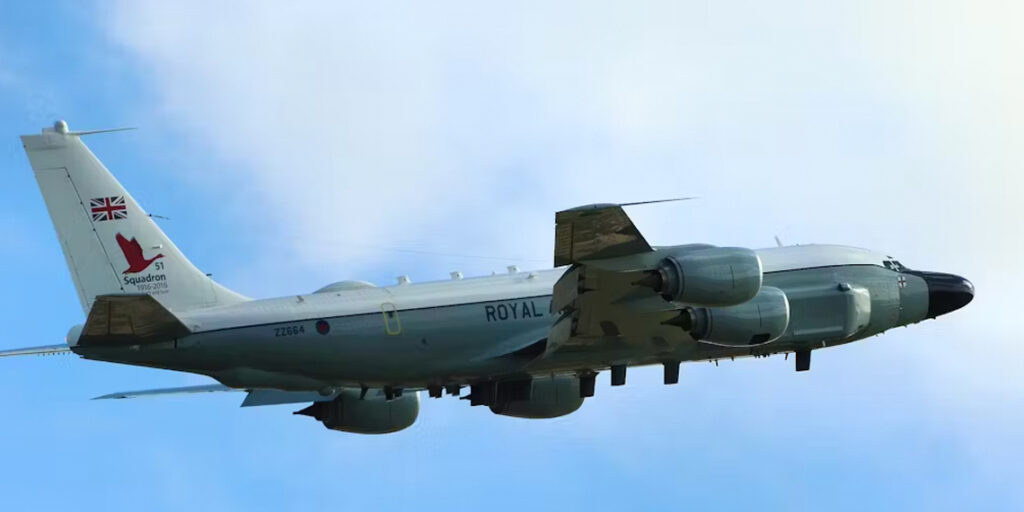A British RC-135W ‘Rivet Joint’ surveillance aircraft has conducted a routine patrol over Latvia and the Baltic Sea, closely monitoring Russian military activity in the Kaliningrad enclave.
These intelligence-gathering flights, which have been ongoing for years, are part of the UK’s broader efforts to monitor Russian forces and electronic signals in the region.
While such patrols are not new, there has been a notable rise in their frequency in recent months, reflecting heightened tensions between NATO and Russia.
The RC-135W Rivet Joint, operated by the Royal Air Force (RAF), is designed to gather intelligence on electronic communications, radar activity, and other signals.
These missions are deliberately visible, ensuring that both the public and Russian forces are aware of their presence.
Alongside British aircraft, American surveillance assets have also been active in the region, reinforcing NATO’s intelligence-gathering operations near Russia’s western borders.
According to the Royal Air Force, the RC-135W Rivet Joint is a dedicated electronic surveillance aircraft capable of operating in both strategic and tactical environments.
The aircraft’s sophisticated sensors are able to intercept and analyse electronic emissions from enemy communications, radar systems, and military infrastructure.
The RAF describes its mission as monitoring elements of the electromagnetic spectrum to deliver intelligence to military commanders.
The aircraft is typically operated by a highly specialised crew of Weapons System Officers (WSOs) and Weapons System Operators (WSOps), who analyse the intercepted data to identify threats and track enemy movements.
The RC-135W Rivet Joint has been extensively used in Operation Shader, the UK’s military campaign against Islamic State (ISIS) forces in Iraq and Syria, as well as in other classified intelligence operations.
While its official RAF designation was once Airseeker, it is almost universally recognised within the service as the RC-135W Rivet Joint.
With Russia’s ongoing military activities in Eastern Europe, the UK and its NATO allies continue to strengthen their intelligence capabilities.
Monitoring Kaliningrad, a highly militarised Russian enclave sandwiched between Lithuania and Poland, remains a key priority for Western defence forces.
As geopolitical tensions persist, the increase in UK and NATO surveillance flights signals a continued commitment to regional security and intelligence gathering.


